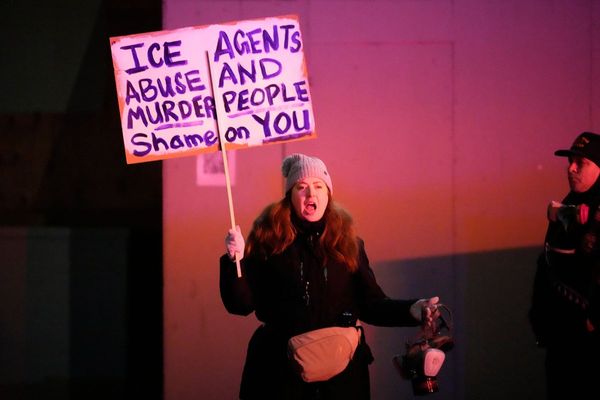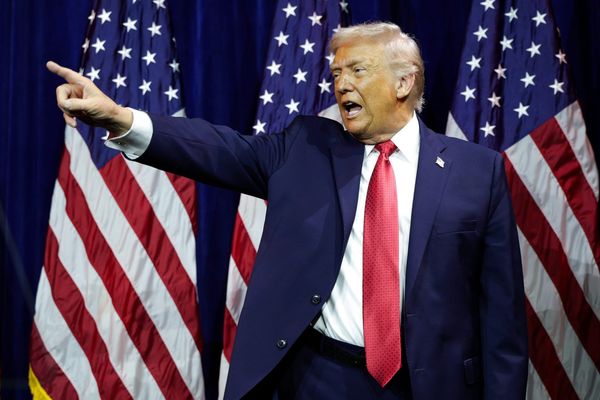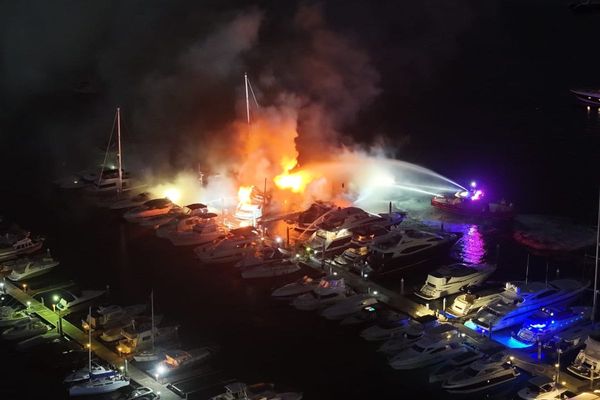Season five of the highly-anticipated Crown has finally landed, and although some viewers may have been miffed about the sizeable hiatus, it seems to have been worth the wait with the royal drama unfolding this time round.
The latest Netflix offering has been dubbed by far 'the most controversial' to date, with a number of unflattering storylines revolving around the lives of King Charles III in his days as the Prince of Wales, the late Queen Elizabeth II, and other royals.
And while many fans of the show admittedly called for it to be delayed and even dropped following the death of Her Majesty in September, executives at the popular streaming service decided to go ahead with their initial launch date - suffering mixed responses.
Read more: The Crown Series 5 Netflix release date and time new episodes go live in UK
The ten new episodes cover the Queen's 'annus horribilis', the breakdown of Charles and Diana's marriage, the now King's affair with Camilla and the changing public view of the monarchy. And while many of the storylines have shocked viewers - how much truth is there to them?
The Mirror reports that while Netflix has added a disclaimer before each episode explaining that it's a "fictionalised drama", many people have taken the content as fact. So here, we take a look at some of the biggest works of fiction in the latest season.
Charles's plot to get Queen to abdicate
One of the season's most controversial storylines shows Charles plotting to oust his mother when he was the Prince of Wales. It shows the heir to the throne calling the then-Prime Minister John Major to a secret meeting at Highgrove, where he seeks help in a bid to replace his mother on the throne.
Charles says: "What makes the Conservative party successful? Its instinct for renewal and its willingness to make way for someone younger. For almost 60 years my great-great-grandfather Edward VII was kept waiting in the wings.
"He longed to be given responsibilities but his mother refused. And yet when his time came he proved his doubters wrong and his reign was a triumph."
However Major slammed the storyline, which appears in the first episode, and the show overall, with a spokesman telling the Telegraph he wasn't approached to fact-check any of the details. The spokesman said: "There was never any discussion between Sir John and the then Prince of Wales about any possible abdication of the late Queen Elizabeth II – nor was such an improbable and improper subject ever raised by the then Prince of Wales (or Sir John).
"Neither Sir John nor Dame Norma has discussed the Monarchy remotely in these terms. As you will know, discussions between the Monarch and prime minister are entirely private and – for Sir John – will always remain so … They are fiction, pure and simple.”
Prince Philip warned Princess Diana over tell-all book
In the second episode, Princess Diana is seen collaborating with author Andrew Morton via mutual contact James Colthurst on the tell-all book Diana: Her True Story. In order to write the book, Diana records her thoughts on tape before passing them to Colthurst, who in turn gives them to Morton.
During this episode, Prince Philip hears about this possible collaboration and goes and sees Diana, where he tells her he is fond of her but she needs to stop her errors of judgement and warns against airing the family's dirty laundry in public. However, according to royal historian Hugo Vickers, Philip did not confront Diana before the book was published and instead read it when it was published in 1992 on a trip to Boston.
He writes in The Times : "After that, there was a sympathetic exchange of letters between him and Diana in which he sought ways to keep the marriage going in the public eye, even though he accepted privately that it was not going well (I have read the correspondence)."
Mohammed Al-Fayed saw the Duke of Windsor in Egypt in 1946
Most of the third episode of the new season is dedicated to the story of Mohammed Al-Fayed and how he came to mix in royal circles. In the opening of the episode, a young Mr Al-Fayed is seen playing football in Alexandria, Egypt, where he was born and witnessing a visit by the Duke of Windsor (the former Edward VIII) and the Duchess of Windsor, Wallis Simpson.
It's suggested that the well-dressed Duke leaves an impression on the youngster, who wants to become an English gentleman. However, it appears that the former royal couple were mainly living in France around that time, with no record of them visiting Alexandria or meeting Mr Al-Fayed.
The Queen shed tears before giving her famous annus horribilis speech
In episode four, the drama series recreates the famous moment the Queen gave a speech at the Guildhall to mark 40 years on the throne, where she described 1992 as her 'annus horribilis'. It was that year that Charles, Anne and Andrew all separated from their spouses and a fire destroyed a large part of Windsor Castle.
In The Crown, the Queen is seen becoming emotional and crying as she travels to the Guildhall alongside Prince Philip, and while giving the speech - however, this did not happen. In addition, parts of the speech that are recreated deviate from the actual words the Queen delivered.
For example in the show, the monarch talks about 'the errors of the past', which did not happen.
Queen and Prince Philip embrace in ruins of Windsor Castle
The dramatic fire at Windsor Castle also features in episode four and shows the Queen racing to her beloved home as the blaze rages. After news footage from the time is shown and the fire is put out, Her Majesty and Philip are depicted embracing each other amid the ash and ruins.
And doubt has been cast on whether this moment of the couple consoling each other ever did happen. In fact, the only other royal at the castle that helped to save precious paintings and artefacts was Prince Andrew.
Diana told Queen about Panorama interview
Episode eight of the new season centres on Diana's bombshell BBC Panorama interview with Martin Bashir. The Crown depicts the secrecy behind the filming of the tell-all chat and the lengths Bashir went to secure the interview.
It then shows Diana requesting a meeting with the Queen and going to tell her mother-in-law she has recorded an explosive interview to air on the BBC. However, Diana's former private secretary Patrick Jephson says this did not happen in reality - it was he who told the Queen's press secretary about it - just seconds before the BBC revealed it would be airing the chat.
Mr Jephson told The Telegraph : "I know it was made up because I was there, and I can tell you that the princess absolutely failed to summon up the necessary courage and delegated the job to me. So, sitting beside her in her Jaguar en route to an official engagement, I used the car telephone to call the Queen's private secretary and break the sensational news.
"In a comedy of confusion — the genuine mark of reality — the only person in the Queen's office at the time was Her Majesty's press secretary who thus got the vital information seconds before he received it first hand from the BBC."
Diana's comment on being future Queen
In some of this season's most controversial scenes, Diana can be seen giving her bombshell Panorama interview. This is despite previous pleas from Prince William not to exploit the notorious chat featuring his late mother.
And not only are parts of the chat recreated, but some of the dialogue also does not match what was said in the original interview. For example, when Diana is asked if she will ever be Queen, in The Crown version she says: "I don’t envisage myself ever being queen, no. I don’t think many people will be calling for that, when I say people I mean those at the top, on my husband’s side.”
Meanwhile in reality she said: "I don’t think many people will want me to be Queen. Actually, when I say many people I mean the establishment that I married into."
John Major acted as intermediary in Charles and Diana's divorce
In the ninth episode, former Prime Minister Sir John Major is asked by the Queen to act as an intermediary in Charles and Diana's divorce. He is depicted as a go-between for the warring couple and helping them come to a financial settlement.
And although Sir John reportedly did try to prevent their marriage from breaking down in 1992, he did not get involved in their divorce. Anthony Seldon, the former PM's biographer said that 'any support and guidance Major could offer was to no avail. After it was clear that the marriage was unsustainable, his prime concern became the constitutional position'.
Read next:
- The shows that left Netflix on November 1
- New Netflix movies and TV shows landing in November - The Crown, Dead to Me and more
- Netflix's The Crown gets 'fictional' warning added to trailer after Judi Dench complaints
-
BBC Breakfast's Victoria Fritz explains reason she changed her name
-
The sickening story behind Netflix's new '10/10' true-crime thriller The Good Nurse







